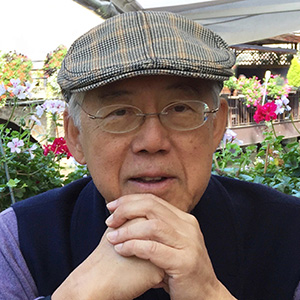Speakers

Dr./Rev. Thomas Tsun-Tong Kwan
Emeritus Professor,
Holy Spirit Seminary College of Theology and Philosophy
Dr./Rev. Kwan Tsun Tong Thomas
Father Kwan holds a double master’s degree in Philosophy and Theology (PUU Rome) and a Doctorate in Ethics (PUL Rome). He has served in various esteemed positions, including as the Director of the Theological Department and Professor of Moral Theology at the Holy Spirit Seminary College of Philosophy and Theology; Curriculum Development Director at the Centre for Civic Education of the Hong Kong Institute of Education; Associate Director of the Centre for Catholic Studies, Department of Cultural and Religious Studies at the Chinese University of Hong Kong. Additionally, he has been an Honorary Professional Consultant in the Department of Educational Administration and Policy at the Faculty of Education of the Chinese University of Hong Kong.
Father Kwan is highly experienced in youth formation training, ethical education, and holistic personality development. Since 2008, he has been dedicated to advancing spiritual education in Hong Kong, offering tailored spiritual formation programs to various sectors, including academia, business, and social work. He is the founder of the “Educational Movement for Human and Spiritual Development” society.
Currently retired, Father Kwan focuses on writing and personal counseling.
Conflict and Reconciliation: A Spiritual Path
All conflicts in the world originate from within ourselves, and so too do the solutions to these conflicts.
Throughout history, whether at the individual or collective level, the roots of various conflicts revolve around fundamental issues such as survival, safety, self-respect, and the unhealed wounds from our past that lead to feelings of dissatisfaction and resistance. Inadvertently, this gives rise to much harm and opposition, both towards the world and others, as well as towards the divine and oneself.
To resolve conflict, we must begin with the heart. Here, "the heart" refers to our consciousness and unconsciousness, the place where we store the memories and emotions related to the traumas we have encountered in our growth. Virginia Satir describes this as the deepest layer of the "iceberg" of human experience, representing our most profound desires. Similarly, Carl Jung refers to this as the realm of the unconscious and the collective unconscious.
In various religious and philosophical traditions, both Eastern and Western, the journey toward inner peace and rationality—which facilitates open communication—often highlights meditation or contemplation as a vital method for reconciliation.
At first glance, conflicts ranging from family disputes to international tensions seem to arise from a complex interplay of environmental, developmental, cultural, economic, political, and even religious factors. One might question how these issues relate to spiritual practice. However, upon closer reflection, we realize that many conflicts stem from our internal fears, insecurities, survival instincts, and self-esteem—or from external sources such as invasion, harm, danger, discrimination, isolation, and abandonment. These issues are deeply embedded in our memories and unconscious. Unresolved, they disrupt our balance of existence and life, leading to physiological and psychological decline, interpersonal dysfunction, and negative behaviors that can escalate into conflict or even violence. As the saying goes, "A journey of a thousand miles begins with a single step." Thus, the ultimate solution to our struggles with others, ourselves, and the world around us begins within.
Drawing on the insights and wisdom from long-established practices, individuals who regularly engage in meditation and contemplation often experience profound psychological and spiritual transformations, both in solitude and within community. These transformations manifest in several ways: first, a transition toward non-dualistic thinking and perception; second, an enhanced capacity for inclusivity and an open-hearted approach to life; and finally, a compassionate perspective toward all living beings.
Ultimately, all transformation begins with oneself.
back